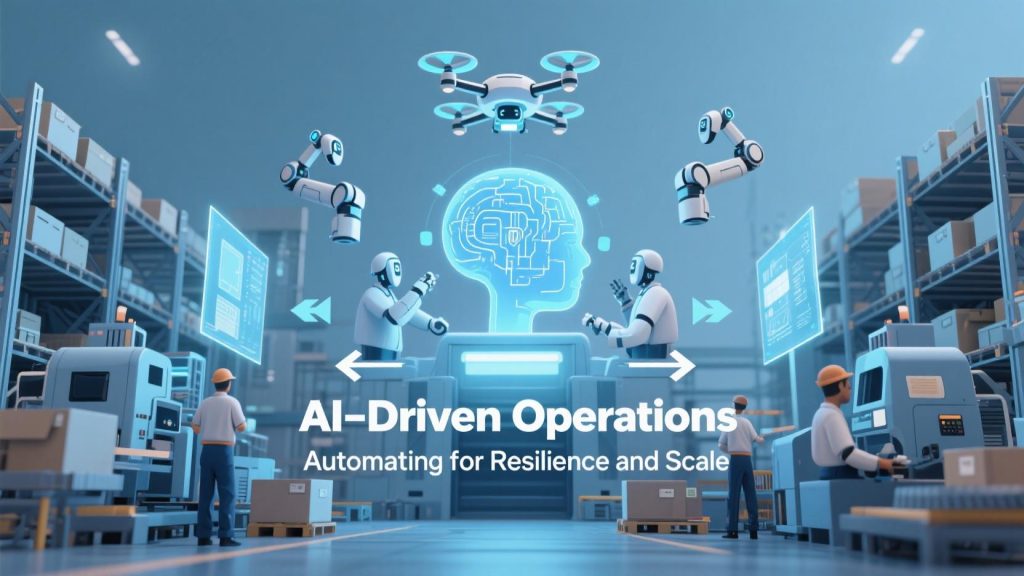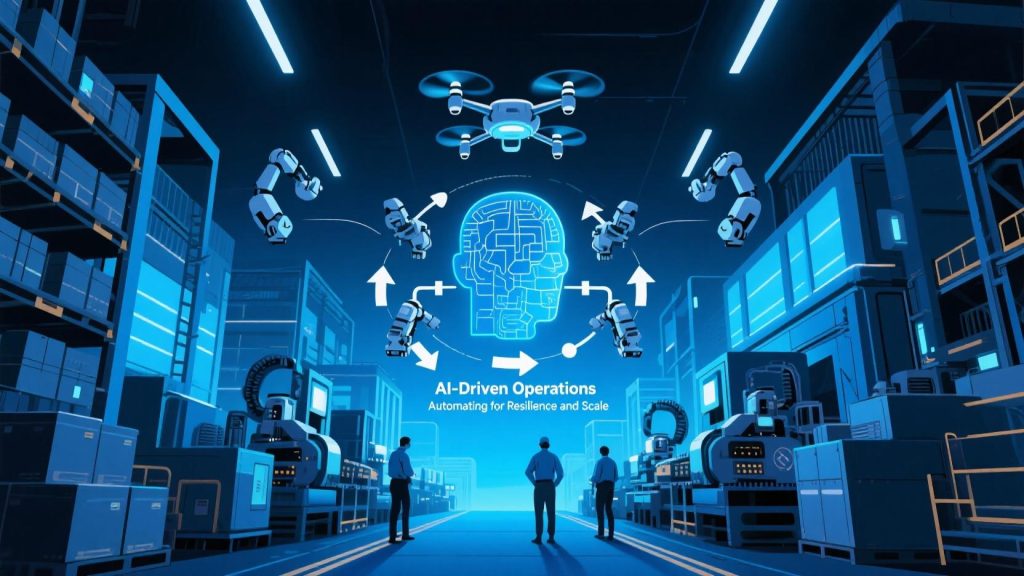From Manual Workflows to Self-Healing Enterprises
In 2025, competitive advantage no longer comes from the size of your workforce — it comes from the intelligence of your operations. AI is now at the core of enterprise infrastructure, quietly transforming how companies forecast demand, manage supply chains, allocate resources, and even detect failure before it occurs.

Welcome to the Age of Predictive Ops
Companies like Unilever, Maersk, and Foxconn have integrated AI into their operations using digital twins, reinforcement learning, and real-time optimization engines. These systems simulate entire supply chains, allowing teams to run “what-if” scenarios and adapt instantly to changing inputs — from weather disruptions to currency fluctuations.
For instance, when a port closure occurred in Indonesia earlier this year, an AI-driven logistics engine rerouted 4,000 containers within minutes, avoiding a potential $12M loss in delayed inventory.
Automation That Thinks Ahead
AI is going beyond robotic process automation (RPA). It now leverages:
Natural language understanding to read and act on emails or contracts.
Computer vision to inspect parts on assembly lines faster than the human eye.
Self-healing systems that detect anomalies and auto-correct configuration errors in cloud infrastructure.
“AI has turned operations into a proactive asset, not just a cost center,” says Martin Leclerc, CTO of a global logistics firm.
Cross-Departmental Intelligence
Finance teams use AI for real-time cash flow projections. HR uses it to optimize workforce deployment. Procurement systems analyze millions of data points to negotiate dynamic supplier terms. AI creates a shared layer of intelligence across departments, breaking silos and enabling strategic synchronization.

Not Without Trade-offs
Scaling AI ops requires high-quality data, robust cloud architecture, and staff retraining. There’s also a cultural shift: from human-led decisions to human-validated AI suggestions. This demands clear rules of responsibility — especially in crisis scenarios.
Key Takeaway
AI-powered operations are no longer a “nice to have” — they’re essential for resilience, scalability, and speed in an uncertain world. The companies that automate intelligently will not only move faster, but smarter.
